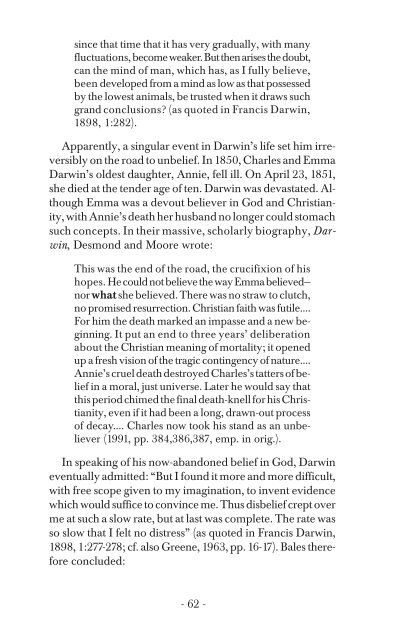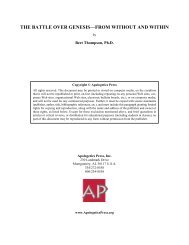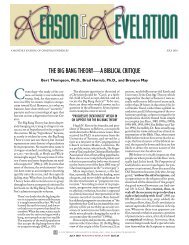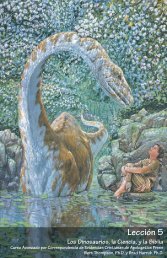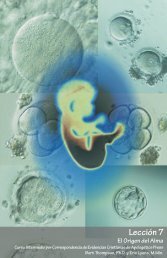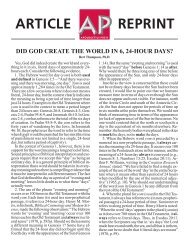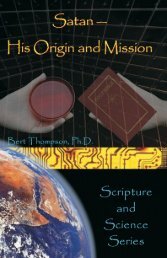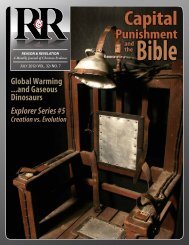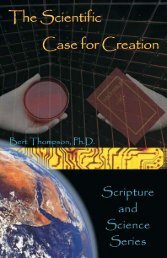The Many Faces, and Causes, of Unbelief - Apologetics Press
The Many Faces, and Causes, of Unbelief - Apologetics Press
The Many Faces, and Causes, of Unbelief - Apologetics Press
Create successful ePaper yourself
Turn your PDF publications into a flip-book with our unique Google optimized e-Paper software.
since that time that it has very gradually, with many<br />
fluctuations, become weaker. But then arises the doubt,<br />
can the mind <strong>of</strong> man, which has, as I fully believe,<br />
been developed from a mind as low as that possessed<br />
by the lowest animals, be trusted when it draws such<br />
gr<strong>and</strong> conclusions? (as quoted in Francis Darwin,<br />
1898, 1:282).<br />
Apparently, a singular event in Darwin’s life set him irreversibly<br />
on the road to unbelief. In 1850, Charles <strong>and</strong> Emma<br />
Darwin’s oldest daughter, Annie, fell ill. On April 23, 1851,<br />
she died at the tender age <strong>of</strong> ten. Darwin was devastated. Although<br />
Emma was a devout believer in God <strong>and</strong> Christianity,<br />
with Annie’s death her husb<strong>and</strong> no longer could stomach<br />
such concepts. In their massive, scholarly biography, Darwin,<br />
Desmond <strong>and</strong> Moore wrote:<br />
This was the end <strong>of</strong> the road, the crucifixion <strong>of</strong> his<br />
hopes. He could not believe the way Emma believed—<br />
nor what she believed. <strong>The</strong>re was no straw to clutch,<br />
no promised resurrection. Christian faith was futile....<br />
For him the death marked an impasse <strong>and</strong> a new beginning.<br />
It put an end to three years’ deliberation<br />
about the Christian meaning <strong>of</strong> mortality; it opened<br />
up a fresh vision <strong>of</strong> the tragic contingency <strong>of</strong> nature....<br />
Annie’s cruel death destroyed Charles’s tatters <strong>of</strong> belief<br />
in a moral, just universe. Later he would say that<br />
this period chimed the final death-knell for his Christianity,<br />
even if it had been a long, drawn-out process<br />
<strong>of</strong> decay.... Charles now took his st<strong>and</strong> as an unbeliever<br />
(1991, pp. 384,386,387, emp. in orig.).<br />
In speaking <strong>of</strong> his now-ab<strong>and</strong>oned belief in God, Darwin<br />
eventually admitted: “But I found it more <strong>and</strong> more difficult,<br />
with free scope given to my imagination, to invent evidence<br />
which would suffice to convince me. Thus disbelief crept over<br />
me at such a slow rate, but at last was complete. <strong>The</strong> rate was<br />
so slow that I felt no distress” (as quoted in Francis Darwin,<br />
1898, 1:277-278; cf. also Greene, 1963, pp. 16-17). Bales therefore<br />
concluded:<br />
-62


